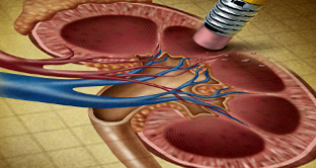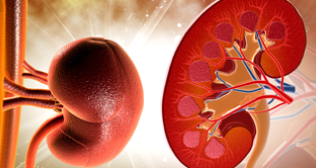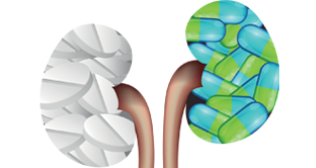
Knowing Kidney Health: The Expertise of Nephrologists
Deep within our bodies, working silently and tirelessly every minute of every day, are two of our most vital organs: the kidneys. These remarkable, bean-shaped powerhouses act as the body's master chemists and purification system, performing a host of complex tasks that are absolutely essential for our overall health. Most of the time, we are completely unaware of their constant labor.
But when their function is compromised, the effects can ripple throughout the entire body, requiring a level of medical care that is highly specialized and deeply knowledgeable. This is the domain of nephrologists, the dedicated experts in the intricate world of kidney health.
The Critical Role of Your Kidneys
Before we can appreciate the work of a kidney specialist, it is important to understand the incredible job the kidneys do. They are far more than simple filters. Each day, your kidneys process about 200 quarts of blood to sift out about 2 quarts of waste products and extra water.
Their core functions include:
Waste Removal: Filtering toxins, urea, and other waste products from the blood to be excreted in urine.
Fluid and Electrolyte Balance: Maintaining the precise balance of water, sodium, potassium, and other essential minerals our bodies need to function.
Blood Pressure Regulation: Producing hormones that help regulate and control blood pressure.
Red Blood Cell Production: Releasing a hormone called erythropoietin, which stimulates the bone marrow to make red blood cells.
Bone Health: Activating vitamin D, which is essential for absorbing calcium and maintaining strong, healthy bones.
When this complex system is disrupted, it requires a physician with a profound understanding of these interconnected processes.
What Is a Nephrologist?
A nephrologist is a medical doctor who specializes in the diagnosis, treatment, and management of diseases and conditions that affect the kidneys. While many people might use the term kidney doctor, the official title for this highly trained expert is a nephrologist. They are internal medicine physicians who have completed an extensive, multi-year fellowship to gain in-depth knowledge of kidney function, kidney disease, the impact of kidney dysfunction on the rest of the body, and the full spectrum of treatments, from medication and diet to dialysis and kidney transplantation. Their expertise is not just in treating kidney problems but in preserving kidney function and managing the complex health issues that often accompany kidney disease.
When a Referral to a Kidney Specialist Is Needed
Most patients are referred to nephrologists by their primary care physician. A referral is not automatically a cause for alarm. Often, it is a proactive step to get a specialist's opinion on a potential issue or to manage a condition before it becomes more serious.
Common reasons for a referral include:
Chronic Kidney Disease (CKD): This is the most common reason. If routine blood tests show a gradual decline in kidney function, a nephrologist is brought in to manage the condition and slow its progression.
Acute Kidney Injury (AKI): A sudden loss of kidney function requires the immediate attention of an expert to identify the cause and restore function if possible.
Difficult-to-Control High Blood Pressure: Since the kidneys play a central role in blood pressure regulation, a nephrologist may be consulted when hypertension is severe or resistant to standard treatments.
Blood or Protein in the Urine: These can be early signs of kidney damage and require a specialist's evaluation to determine the cause.
Recurrent Kidney Stones: While a urologist often treats kidney stones, a kidney specialist may be involved in finding the underlying metabolic cause to prevent them from forming again.
Complex Electrolyte or Acid-Base Imbalances: A nephrologist has unique expertise in diagnosing and managing complex issues with sodium, potassium, or the body's pH balance.
The Comprehensive Care a Nephrologist Provides
The scope of a nephrologist's work is broad, covering every aspect of kidney care. They are the central figure in managing a patient's journey with kidney disease.
Managing Chronic Kidney Disease
For patients with CKD, the primary goal is to preserve the remaining kidney function for as long as possible. The kidney doctor orchestrates a multi-faceted plan that includes medications to control blood pressure and diabetes, dietary recommendations to reduce the workload on the kidneys, and lifestyle counseling. Regular monitoring allows them to track the progression of the disease and make adjustments to the treatment plan.
Dialysis Care
When a person's kidneys can no longer adequately filter their blood, a condition known as end-stage renal disease (ESRD), dialysis becomes necessary. Nephrologists are the physicians who manage this life-sustaining treatment. They determine when dialysis is needed, help the patient choose the best type for their lifestyle (hemodialysis or peritoneal dialysis), oversee the treatments, and manage any related complications.
Kidney Transplant Management
For many patients with ESRD, a kidney transplant is the best option for a longer, healthier life. A nephrologist is a key part of the transplant team. They evaluate patients to determine if they are suitable candidates for a transplant and manage their care while they are on the waiting list. After the surgery, the nephrologist provides crucial long-term follow-up care, managing the powerful anti-rejection medications and monitoring the health of the new kidney.
A Proactive Partnership in Your Kidney Health
The kidneys are resilient, but the damage from disease can often be silent and gradual. The field of nephrology is built on the principle of proactive, long-term management to protect these vital organs.
A referral to a nephrologist should be seen as a positive step. It means you have an expert ally dedicated to understanding your specific condition and creating a personalized plan to preserve your health. This partnership empowers you to take control and play an active role in the journey toward better kidney health.
Frequently Asked Questions
Q1. What is the difference between a nephrologist and a urologist?
Ans. This is a very common and important question. Nephrologists focus on the function of the kidneys and treat diseases that affect how they work, such as chronic kidney disease and diabetic kidney disease. A urologist is a surgical specialist who treats anatomical or structural problems of the urinary tract, which includes the kidneys, bladder, and ureters, such as kidney stones, bladder problems, and cancers of the kidney or bladder.
Q2. Does seeing a nephrologist mean I will definitely need dialysis?
Ans. Absolutely not. In fact, one of the primary goals of a kidney specialist is to prevent or delay the need for dialysis for as long as possible. The vast majority of patients seen by a nephrologist are in the early to moderate stages of kidney disease, and the focus is on preserving their remaining kidney function through medication, diet, and lifestyle management.
Q3. What are the most important things I can do to protect my kidneys?
Ans. The best ways to keep your kidneys healthy are to manage risk factors. This includes keeping your blood pressure and blood sugar within a healthy range, maintaining a healthy weight, not smoking, and using non-steroidal anti-inflammatory drugs (NSAIDs) like ibuprofen sparingly, as they can be harmful to the kidneys with overuse.
Q4. What is GFR, and why is it so important to a kidney doctor?
Ans. GFR stands for Glomerular Filtration Rate. It is the single most important measurement a kidney doctor uses to assess kidney function. It is a calculation based on the level of creatinine (a waste product) in your blood, along with your age and sex. The GFR number estimates how much blood your kidneys are filtering per minute, providing a clear picture of what stage of kidney disease a person is in and guiding treatment decisions.



















